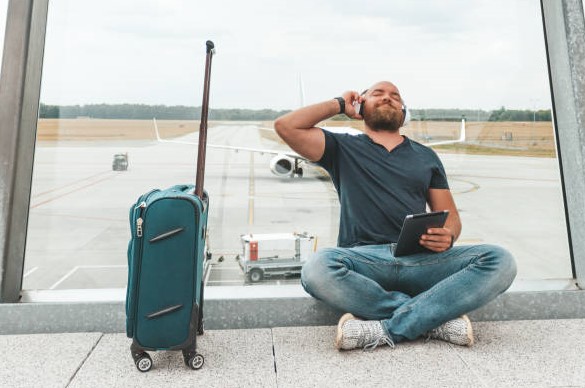
Ensuring Passenger Rights: Navigating Air Travel Delays and Cancellations
In the realm of air travel, passenger rights are paramount. Whether jet-setting for business or embarking on a well-deserved vacation, travelers deserve transparency and support when faced with flight disruptions. The aviation industry acknowledges this fundamental principle by guaranteeing passengers certain entitlements in the event of delays, rerouting, or cancellations.
Passenger Care and Assistance
At the heart of these rights lies the concept of care and assistance. Should a flight encounter delays or require rerouting, airlines are obliged to provide passengers with necessary aid. This assistance may encompass meals, refreshments, accommodation, and communication facilities, ensuring that travelers are not left stranded or disadvantaged by unforeseen circumstances. Moreover, when cancellations occur under circumstances within the airline’s control, passengers are entitled to refunds or alternative compensation. This commitment to accountability fosters trust and accountability within the industry, reinforcing the importance of customer-centric practices.

Nuances Surrounding Flight Disruptions
It’s essential to acknowledge the nuances surrounding flight disruptions. While airlines uphold their obligations diligently, certain factors lie beyond their jurisdiction. External elements such as air traffic control issues, adverse weather conditions, or strikes by airport personnel can precipitate delays and cancellations. In such instances, holding airlines financially responsible would be unjust and impractical.
Example of Passenger Rights Naunces Surrounding Flight Disruptions
- Consider, for instance, the impact of inclement weather on flight schedules. Despite meticulous planning and operational efficiency, airlines cannot override nature’s whims. Similarly, air traffic control constraints may necessitate adjustments to flight paths, leading to unforeseen delays. In these scenarios, airlines act as intermediaries, striving to minimize inconvenience while prioritizing passenger safety.
- Moreover, strikes by airport employees represent yet another external variable influencing flight operations. While such industrial actions are beyond the purview of airlines, they can disrupt travel plans significantly. By recognizing these externalities, travelers gain a deeper appreciation of the complexities inherent in air travel.
Conclusion
In essence, the delineation of passenger rights within the aviation industry reflects a delicate balance between accountability and pragmatism. While airlines are committed to providing care, assistance, and compensation where feasible, they cannot be held liable for circumstances beyond their control. By fostering mutual understanding and cooperation, stakeholders can navigate flight disruptions with greater resilience and equanimity.
As we embark on our journeys, let us remain cognizant of these principles, advocating for transparency, accountability, and passenger-centricity within the dynamic landscape of air travel. In doing so, we uphold the integrity of the aviation industry while safeguarding the rights and interests of travelers worldwide.





0 Comments